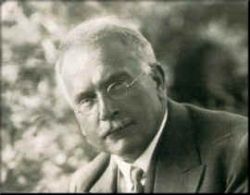Jeremy Taylor: On Dreams

Dream Interpretation: Your Path to Health and Wholeness
I asked Jeremy Taylor how he would like to be introduced and he replied:
"Generally, I prefer to be called "a long time dream worker", or, if you wish, "an established leader in the field of dream work". I am one of the four original cofounders of the International Association for the Study of Dreams , (IASD), along with Gail Delaney, Strephon Williams, and Patricia Garfield. I started my focused study of dreams in my early to mid-20's, and I turned 65 earlier this year, so the math is inescapable - I have been doing individual and group projective dream work for more than 40 years.
Jeremy is the preeminent dream expert of our day and yes, a "long time dream worker". This thread is about dreams and how they enhance your life. It is not a Jeremy Taylor thread because he didn't want it that way.
I want to thank Jeremy and his wife Kathryn, for their contributions to this lens, including the generous permission to use the image that graces his website.
Jeremy Taylor
"ALL dreams, (even the most horrendous nightmares), come in the service of emotional, psychological, physical, intellectual, and ultimately "spiritual" health and wholeness."

No Ifs, Ands or Buts! All Dreams!
Jeremy Is Serious, EVERY Dream!
"How can that be?", you might ask. "I wake up sweating and crying, how can that be in service to my health and wholeness?"
If you have ever flown in a dream, you know that dreams are symbolic. If flying and purple cows are symbols, then so is death or even the scary thing chasing you.
First the scary things. Years ago, I read something about facing up to the things in your dreams. I had been having one of those recurring dreams with something chasing me. That night, before sleep, I told myself I wasn't going to run. In the dream I turned around and said 'Boo!' and IT ran. Well, I got rid of the fear, but unfortunately the message went with it.
Now I would know to turn around, face it and ask it what was it trying to tell me. Remember the movie "The Sixth Sense"? When Haley Joel lost his fear and started listening to the 'dead people' they started looking better and gave him important information.
We remember nightmares more than we remember nice little romps in the meadow. They certainly grab our attention. Either you have been ignoring unconscious messages too long, or the message is just that important. A nightmare is your unconscious grabbing you and shouting, "Pay attention!" Stop running, start asking.
If you still don't believe that all dreams come in the service of health and healing, then you have to listen to Jeremy work a nightmare. I have seen it so many times; something that looked hopeless suddenly turn into a Eureka! with tears of joy instead of tears of fright.
If you can't go to a Jeremy event, get a referral for a good dream worker. Or attend the Haden and find out how to start and do groups. Because if you are having a lot of nightmare's, you need that information for your wholeness.
BTW, bad dreams or dreams of death often mean that something in you is changing. In order for us to grow,to become something new, something old has to die. This is the order of things. One reason that children have so many nightmares is that they are changing so much.
Learn to relax, see the dream as your friend, listen and study the vast complexities.
Jeremy Taylor on Dreams of Suicide
Overt death in dreams is not the harbinger of physical death. Whether of the self or someone else, it is a sign of a profound change in the self of the dreamer. The article in this link is about suicide, especially in the dreams of addicts. It is most likely about the death of a part of the addicted self.
However, remember Jeremy's lesson, that all dreams have multiple layers and the dreamer is the only person who is the true expert in their meaning, just as the dreamer can miss much of the complexity..
If you have a dream about death, don't worry, use it as a piece of information that will help you get to the layers of meaning.
- Suicide and Death in Dreams
"As the Jungian analyst, Robert Johnson has said to suicidal people on several occasions, "By all means, kill yourself...(!) but DO NOT HARM YOUR BODY!"" In other words, kill that self that is destroying you, make room for the new self, but leave
Do Something Important for Yourself, Work With Your Dreams - Visit These Sites
- Jeremy Taylor
Jeremy's site has information about his work and his appearances. If he is in your area, go. Just sign up and Go! For a real treat sign up to have Jeremy analyze a dream. Just be prepared for a wait. - The Haden Institute
The bad news is that Jeremy is booked up until December of 2009 or 17 months from the day you read this. However, the good news is that you can see him at the Haden Institute. He can teach you, you can see him analyze dreams, including yours, you ca - Kathryn Taylor
Kathryn Taylor is Jeremy's beloved, his right hand person and an artist in her own right. This is her Blog. She has been amazing in helping me organize getting information to you in the middle of Jeremy's packed schedule.

Dream Theories
Freud and Jung
Margo: "Jeremy, Do you use more Jungian or Freudian philosophy (something else or a mix)?"
J.T.: "I definitely use a mix of all the theories/philosophies of dream interpretation in my work, and at the same time, I find Carl Jung's insights generally more useful and important than any other one approach."
Freud was the first modern, Western person to popularize the concept of the unconscious. When the subject of dreams is introduced in movies or party conversation most people think of Freud, however, it was Jung who used the dream to its fullest potential.
I have studied Freud in psychoanalytic training and Jung at the Haden Institute Dream and Spiritual Direction Programs. Here is the difference in a nutshell.
Freud believed that humans had to sublimate their basest selves in order to create societies. He thought that the strange and unusual images that appear in dreams were there to hide from us our worst selves.
Jung was a spiritual person and had a more positive view of the human. He thought that the dream was our connection to the unconscious and its wisdom.
Note: the picture is Carl Jung
Note: Freud was the first modern person to popularize the notion of the unconscious,however, the concept is also ancient. Additionally, while we think of Freud and Jung in relation to dreams, the use of dreams for multiple reasons is as old as humanity. Remember that Joseph used his abilities with dreams to save Egypt, gain status and ultimately help his people.
Jeremy Taylor
"This health and wholeness is not limited just to the individual who has the dream. The symbolic language of the dream world is universal, and demonstrates that the health and wholeness that the dreams serve embraces the whole human species, (and by inevitable implication, the entire planet, and the whole cosmos that surrounds and defines us)."

The Collective Unconscience
A Weekend at Kanuga with the Haden Institute
One weekend at Haden, not a Jeremy weekend, the participants were given an assignment. A new class had just started so people from the different groups were just getting to know each other.
A volunteer was taken from each group, someone who was not known to people in the other group. I was not present at the time, but probably just as well as, having attended both programs, I knew them both of them.
Each man chose a significant item to pass around to the members of the other group.
When my cabin mates returned they told me that the assignment was to dream a dream for the person who belonged to the other group. We all went to sleep and dreamt about cops and robbers or other violent crimes.
When the groups got together the next morning we discovered that the other group had dreamt of raw meat and blood.
We then learned that one man was dealing with some legal issues and the other had just had a 'concerning' biopsy. (Both worked out fine, btw)
Thus when told to dream for someone else, we all were able to do it, even me, who wasn't present for the beginning of the experiment!
If you can get your hands on the DVD for Northern Exposure look for the episode where in the people of Cicely had each other's dreams and the radio announcer had the task of matching the dreamer up with the right person! It's a great illustration of this phenomena.
Dreaming and Society
I was lucky enough to find a used copy of this book when it was still affordable. It is an important statement about the meaning of use of dreams on a societal level. But one of these copies if you like, but check to see if your library has a copy,especially if you are near a university.
Jeremy Taylor
"ALL dreams, (from the tiniest fugitive fragment to the 25 page epic with many illustrations), have multiple levels and layers of meaning and implication. (In my experience, ALL the theories of dream formation and consequent meaning are correct, at the level which they address, and are incorrect when they make exaggerated claims to comprehensive and exclusive truth)."
The "Fugitive Fragment"
Jeremy tells the story of a man who had belonged to a dream group. He participated and was helpful with other peoples' dreams, but no matter what he did, he could not come up with a dream of his own. Finally Jeremy encouraged him to come up with that 'fugitive fragment'. The word, "petal" appeared. From that word the man, Jeremy and the group were able to develop a complex, multi-layered analysis that changed the man's life.
People ask about buying 'Dream Symbol Dictionaries'. There are universal symbols, however, beware of assuming that you can get any answers from looking up a word in a dictionary. In the dream world, a cigar is never just a cigar. Thus while cigar may have a universal meaning, there are also personal meanings that involve the references and context of the dreamer. Additionally, some dream dictionaries are excellent, some are not.
Jeremy also teaches that 'Dreams do not come to tell you things that you already know'. Thus if it sounds too pat, or if you wake up sure that you know what it means, that is the time to really let go of those notions and look at it closely.
If someone else tells you that they know what the dream means and it is definitely this. Remember the words of Sidhartha, "If you see the Buddha on the side of the road, kill it." Symbolically kill what you are sure of.
"All Dreams ... - have multiple levels and layers of meaning and implication.."
In put from others is a way to shake things up to get to deeper meanings. The poetry method in this lens can also stimulate your creativity in looking into your dreams.
- 8 Line Poems to Help You Go Deeper into Your Dreams
Try this method with one of your dreams. Or try combining a couple of dreams from one night or recent nights.
Margo: "How have dreams helped (impacted) people?"
Jeremy Taylor: "Dreams have diagnosed life-threatening disease long before there were any symptoms noticeable in the waking world, and this been instrumental in preserving their lives. (A woman dreams she "has rotting meat in her purse", and turns out to have uterine cancer). Dreams have offered creative solutions to life's problems, (including Elias Howe dreaming the basic solution to designing the first sewing machine - put the thread transport hole in the point of the needle - in a nightmare about being "boiled alive in a big pot"). Dreams have helped many people through emotional/relational crisis, and, of course, served as as inspiration for nay number of works of art..."
Jeremy Taylor
"The original dreamer is the only one who can say with any certainty what the deeper meanings and implications of his/her dream(s) may be, but the dreamer will also always be uniquely and selectively blind to the deeper messages of his/her dreams, and will need the help of other people's projections to see these other, often more important layers, more clearly and consciously."

Projection and Dreams
"I must also confess to a certain amount of annoyance that it must be referred to as "projective" dream work, implying that there may be other forms of dream exploration that are somehow NOT projective... ALL dream work is projective, because even if someone sincerely believes that his/her information about the deeper meanings and implications of dreams is "objective" and "scientific" - such people still have only their own imagined versions of the dreams they are "interpreting" to talk about, or apply their supposedly "beyond projection" insights and theories to. Talking about an imagined reality is the very definition of "projection" - so, "projective dream work" refers to strategies and methods of exploring dreams that consciously acknowledge this inescapable truth from those that try to ignore, deny, or gloss over the inevitably "projective" aspect of ALL dream work."
Dream analysis, whether done one on one or in groups is a process of projection. What this means is that any dream analyst can only tell the dreamer what the dream would mean to the analyst had he or she had the dream. No one know your unconscious better than you do.
What?!? Then why talk to anyone else, be in a group, hire someone to work with your dreams? Well, for one thing, you can read the letter you wrote many times but it takes another person to find the glaring typo that you missed each time.
However, in dream analysis, certainly the type that Jeremy has used to help so many people over 40 years, the analyst is not pointing out someone else's errors, but the errors the editor would have made had the editor written the letter.
I dream that I am flying to the ocean (always tell dreams in the present tense) and am suddenly riding a cow over the water. The analyst cannot tell me what that means. He can tell me what he thinks it mean while happening to him. That is projecting. Now, we all project ourselves into what we hear all the time. The difference here is that it is being acknowledged.
Well, how does this help?
There are universals that can come through the projections. Even when the analyst's projection makes no connection, it can stimulate thoughts and emotions that will lead to other insights.
It is a give and take, where the dreamer is the one with all the insight and at the same time the blindest.
Sound contradictory? Well, frankly, the best way to understand the process at this point,is to experience it.
Margo: How have dreams helped(impacted) society ?
Jeremy Taylor: "Certainly, the sewing machine example, (see above, to say nothing of more modern examples, like Neils Bohr's dream of the "racetrack" inspiring his initial insights into quantum physics, etc.), points to the huge societal impact of the many dreams that introduce innovative ideas and technologies. Dreams are also at the source of virtually all religious ideas, (life after death, reward and punishment after death, reincarnation, the nature of the divine. etc. including specific prayers and ritual activities, (such as the Moslem "call to prayer" heard five times a day around the world, and the Christian hymn, "Amazing Grace"...)"

Dramas of the Night
A Jeremy Taylor Video
Dreams: Dramas of the Night
Video, 1996
Jeremy discusses dreams collected by the Rev. Ed Brock. The Rev. Brock has been studying and working with dreams for many years and has a particular interest in dreams and spirituality and in dream group process. He is the minister of the Unitarian- Universalist Church of Jacksonville, FL, president of the Interfaith Council of Jacksonville and a graduate of Vanderbilt University Divinity School. The Rev. Brock's introductory and concluding remarks place Jeremy's insights in the context of Jungian psychology and community/group exploration of dreams.
Produced by California Video, an independent video production company founded by John Van Daam, pioneering community dream worker and co-founder of the international Association for the Study of Dreams. California Video is devoted to bringing innovative planet healing ideas and images directly to a wider audience.
To order, contact Kathy Taylor at kathryntaylor123@comcast.net. Cost: $25.00 postage paid."

Remembering Your Dreams
They Can Be Illusive, But You Can Remember More
I have had dreams that were so vivid that I was sure I would never forget them! And I didn't, for at least five minutes.
Tip # 1 Keep a pad and pen by your bed. When you wake, lie still and go through the dream right then and write it down before you get our of bed. Even if you only write a few points, that will help. If you won't write, keep a recorder by your bed and dictate.
Tip #2 Before you go to sleep, get quiet and send a message to your unconscious that you will have a dream and remember it. The best way is to say it out loud. The unconscious wants to hear you.
Tip #3 Spend some time of each day journaling about your dreams. If you remember them great, or use the bed side notes to expand. Make a quiet time and let yourself get back into the dream.
You can use anything you like for your journal. Bookstores sell beautiful blank books. Or just get a spiral notebook.
Jeremy gets notebooks, does dream collages on them, with images from magazines and other sources and covers that with clear contact paper. I like this as it makes the dream journal more personal.
To Do List:
1. Make dream journal
2. Put paper and pen by bedside to record dreams
3. Consider audio recorder
If You Liked This Lens.... - There Are More Where Is Came From.
- Margo_Arrowsmith Lenspography
A variety of lens about business, health and social consciousness
The Jeremy Taylor Library - These Are Wonderful Books, Packed Filled with Knowledge, Inspiration, Insight and Very Readable.
Margo: How did you publish your first book?
Jeremy Taylor: "I self-published a little pamphlet entitled Basic Hints for Dream Work, which eventually came into the hands of the Paulist Press in New Jersey. They commissioned me to write a longer, more comprehensive "trade book", which turned into Dream Work, Techniques for Discovering the Creative Power in Dreams, Paulist Press, Mahwah, New Jersey, 1983, ISBN #0-8091-2525-0, which is still in print, more than 25 years later."
Samples From "Dreamwork" - by Jeremy Taylor
Lenses About Dreaming
- Dream Interpretation
This lens by gmarlett is a great background for basic dream interpretation and Jung! Check it out.
Any Purchase Here Will Contribute to Heifer International: The Pay It Forward Entrepreneurial Char
Your Dreams Are Valuable: Don't Lose Them! - Recording in the Night is a Great Way to Save Them
About Dreams
Do You Analyze Your Own Dreams?
Have You Ever Ha a Dream Analyzed Professionally?
Do You Keep a Dream Diary?
The New "Library"
I have a love affair with books. I believe a room is not part of a home until it has some books in it. When I was 45 I owned every book I had ever read (almost) and shipped everyone of them from New Jersey to North Carolina!
However, 10 years later when I sold my Raleigh house, I couldn't face moving them across town. I purged, and purged when I moved again. And frankly, although I still believe that every room needs books, I am beginning to see walls of them as oppressive.
Enter the Kindle. I think this will save my life! Not only can I have my entire library with me at all times, but the books are much less expensive AND I am saving forests.
Its a win/win all the way around. Just so long as I have some books in each room!





















